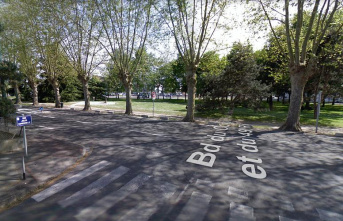"Neither the United Nations or the Security Council have functioned since the beginning of the war in Ukraine." Volodymyr Zelensky, the Ukrainian President, signed the sentence without appeal. This statement does not negate the opinion of Antonio Guterres (the Secretary General of UN), who believes that the Security Council "has failed to end the war". It is difficult to prove them wrong. The international organization has not taken any action against Russia's aggressor and there are no peacekeepers present in the country to either serve as interposition forces or to secure humanitarian corridors. . Why is this impotence when 141 countries (outside 193) voted for a text that required Russia to "immediately cease using force against Ukraine". What about the 11 Security Council members (out of 15), who voted in favor of a similar resolution at February's end? Because Russia exercised its right to veto.
Since the creation of the UN, this right was granted to five victorious countries of World War II (United States of America, Russia, China and France). However, it seems that this burden has become a significant problem for the UN in recent years. This makes any peacekeeping intervention in Ukraine (to protect the Rohingyas), Burma (to aid the Uighurs), or Xinjiang in Syria, Burma (to preserve the Rohingyas), impossible. Is it possible to delete this power? Although the idea seems appealing, it would be difficult to implement. This would require the five permanent members to the Security Council to relinquish their power. However, the international order cannot be destroyed without allowing another to take its place. This is not an easy task.
Renaud February
Since the beginning of the conflict in Ukraine, the UN has been a ghostly organization. This is a failure of the United Nations.
Yes. Unfortunately, the UN was unable or unwilling to take concrete action on the ground. It hasn't sent blue helmets or sanctions to Russia to Ukraine because of Moscow's veto. This is a rare situation: Russia has the right to veto any sanction against...its own military invasion.
Therefore, the United Nations had to be limited to resolutions and declarations of the General Assembly and humanitarian assistance to Ukrainians through the Office for the High Commissioner For Refugees (UNHCR).
It is the UN's relative paralysis, as you can hear. Do you think it should be removed from Russia? Oder should it be removed completely?
It should be removed for all countries, not just Russia. This impedes the UN's work, and Russia isn't the only one. Since the founding of the United Nations, it has been used more then 260 times. It was used 143 times by Russia or the USSR, particularly on Syria, and more than 80 times in the United States to stop the voting of resolutions that were against Israel. It could have been even worse because the threat of the UN veto can often be enough to force the UN to back down and stop the sanctions.
This right to veto is a legacy from the international balances that were established in the aftermath of World War II. It was a tool for the five victorious nations [United States of America, Russia, China and United Kingdom, editor's notes]. These are the five permanent members to the Security Council, the "P5". The veto is not in line with current geopolitics because it is not democratic. The Security Council is the only organization that has any democratic function. It includes 10 countries sitting alternately and five countries with vetos.
How can you change things?
It is unlikely that the right to veto will be abolished at this time. This decision would need to be approved by the Security Council. Unsurprisingly, there would be a veto right! Reforms can be made by amending the United Nations charter.
The General Assembly is where every country has one vote and it is the Organization's most democratic organ, even though some want to go further by weighting votes according to the country's population.
However, only 15 countries can vote in the Security Council. This is despite the fact that it is the United Nations' executive body that can set up military intervention or international sanctions.
Some would like to see the UN's permanent seats expanded to other countries in order to democraticize its central body. This could include India, Germany, and Japan. However, this would increase the possibility of veto rights which is not a good idea.
What should you do?
In the early 2000s, former Secretary General of United Nations Kofi Annan proposed a consensus plan to suspend a country’s right to veto in cases of mass-crimes. France assumed the torch following the departure of Kofi Annan and the proposal is supported now by over 100 countries, i.e. the majority of Member States.
Isn't it the right time to reform?
This development is possible because of the war in Ukraine. If a majority of member states and world public opinion support it, this could pressure the P5 countries into accepting the change. We have already said that any UN Charter reform must be approved by the veto power. The subject should be brought up by citizens and civil society, through petitions or NGO campaigns.
It is clear that things are moving quickly: The General Assembly passed the Liechtenstein resolution. This obliges the General Assembly to justify the use the veto.
Is the UN doomed not to be a ghost if it is not reform?
Even though the UN's primary mission, maintaining peace, can sometimes be hampered, it is still an important organization. This includes development aid or the High Commission for Refugees. It also serves as a vital organization in the areas of education and health with Unesco, and health with WHO.
The UN's peacekeeping mission is also upstream. It is called "peacebuilding", which refers to all interventions that are intended to prevent or start a conflict, such as those dealing with democratic or social causes. This is more effective at laying the foundations of lasting peace.
In times of crisis, the UN provides a platform for country representatives to discuss their issues. The General Assembly is a forum for discussion, but informal exchanges can also be made between diplomats in the corridors. This allows them to sometimes unblock situations. This isn't all.
Interview by R. F.
What did you think about Volodymyr Zelensky, the Ukrainian President, comments on the UN's incompetence since the outbreak of war in Ukraine?
The UN is involved in the daily war in Ukraine. All its humanitarian structures, including the High Commissioner for Refugees and the World Food Program, are present in the country. This ensures the survival of thousands or even millions of people.
Diplomatically, there were two extraordinary General Assembly meetings, this "world forum", where two major resolutions against the Russian invasion were passed. This allowed us to get the political perspective of the international community.
It is true, however, that the UN cannot stop or solve the conflict in Ukraine. Because of the Russian veto, and the Chinese abstention, the Security Council, which is "international police", was unable to fulfill its function.
Isn't Russia's use the UN veto to block Russia's invasion in Ukraine a sign of its failure? It should be removed from Russia or abolished altogether.
We must all ask the question about the veto if we are to ask it. It is a false idea and is impossible to implement without the consent of five permanent members of Security Council. But, remember that the UN would not exist without the right to veto: the Security Council's coercive power would have been rejected by the permanent members. It is possible to end it, which would bring us back to the League of Nations.
The right to veto has also been sometimes very helpful: in 2003, it was the threat of a right-of-veto from France that prevented the UN's support for the Americans in the war on Iraq.
My conviction is that the veto is a sign of something deeper and worse: the lack of dialogue between the five major powers. Imagine that some powers are provoking others to create texts to trigger vetoes. Then, you can point the finger at them.
It's still problematic that authoritarian states like China and Russia wield this power...
Let's not forget that the Charter of the United Nations was violated over years by five permanent members of the Security Council. It is also simplistic to claim that Russia and China are the "bad guys." The intervention in Kosovo, 2003, and the war in Iraq, 2003 have all been criticized by the West. In 2011, the US invaded Libya.
What do you think about Kofi Annan’s proposal to suspend a country’s right to veto in case of mass crimes?
You can think of all the reforms you want. But the problem isn't institutional. He is also political! But, a political problem can't be solved by procedural reforms without historical, geopolitical, and cultural reflection. The UN Charter is a balanced, wise text. It is time to get back to the basics.
Kofi Annan's proposal is intriguing on paper but I don't think it actually works. Who will decide if there are mass crimes? There are many stories in Ukraine that don't agree with each other.
However, I find it interesting that Liechtenstein took the initiative and had it adopted by the UN General Assembly just a few days before. It obliged the P5 to use their veto and thus to express, argue, and discuss! This is geopolitics!
Which other evolution is desirable?
Russia cannot be eliminated, so we must live with it. The UN cannot be reduced to a superhumanitarian organization. The UN must play a role in politics as it is the only international forum. A major international conference is needed on self-defence, force use, and early warning mechanisms. This is especially important for Ukraine, where there have been numerous signs of alert. Security issues.
This kind of meeting is ideal for reflection at the UN, provided that countries listen to one another and that they aren't just in balance of power. Imagine an extraordinary meeting between the permanent members and the Security Council. This would be a conclave on neutral ground in Dakar, for example. They could "fuck each others in the face" verbally, and get off to a good start.
It is important to consider what each power wants, and how they can reach an agreement, while taking into consideration their legitimate security interests. They should be able to "renew" their 1944 vows through a new international political agreement that is in everyone's best interest. We don't lack ideas; only political will.
How can we renew the dialogue?
This would require more transparency and intellectual honesty, particularly from the West. They must also acknowledge their past mistakes, particularly in Iraq or Libya. This requires a more cold, pragmatic, and less moral outlook. You should also use fewer bird names. And there won't be any dialogue.
China and Russia have become convinced that they were fooled by the intervention in Libya, which resulted in the fall of Muammar Gaddafi. They therefore block any attempt to intervene. It is essential to restore trust between permanent members, including those with these countries. Are there legitimate demands in Russian security matters?
We could then, and only afterwards, reflect on institutional procedures with possibly, as the Ukrainian president asks, a reformation of the blue helmets for a more energetic and dynamic mechanism.
This is a great time to get started on such work.
Although the war in Ukraine is a sign of the lack of international discussion, I'm not convinced that the current climate allows for such reflection. The American attitude is a clear indicator that we are not on the right path.
You're correct, however, that if we do not seize this chance, there will be more crises, such as in Taiwan and the China Sea. Therefore, it is important to take action so that the crisis, in all its misery, can be used for good. You must understand the political context in order to do this.
Who would drive such a project.
It is normally Antonio Guterres (the Secretary General of United Nations) who takes the initiative to be the spokesperson for international community. His political weakness is disappointing. His timidity is quite dramatic. He should wet his shirt!
The West should also listen to Africa, the South and other countries that are calling for this path. I'm thinking of the statements of the African Union, the Kenyan Ambassador to the UN, and Macky Sall, President of Senegal, which would be excellent mediators. Perhaps a future General secretary!
France could take the initiative within the Security Council. France could, by itself, condemn the Russian invasion but also remind everyone that the Charter must always be respected, even the Americans. Emmanuel Macron, a bit like Chirac and Villepin 2003, should be able to stand out from the rest and accept the fact that all great powers have made errors throughout history. It would calm the atmosphere and make it difficult for the Russians to argue.
This would be a significant political gesture for France, which has historically been a non-aligned, mediating power.
Is there any hope for the future?
I am concerned, but not pessimistic. This crisis is worse than any of the others, and it has a brutality that is rare. We are vulnerable to any incident that could lead to further degeneration. There are still reasons to be hopeful: diplomacy is always possible and dialogue is encouraged. I'm thinking of Turkish mediation of Antonio Guterres trip to Russia, Ukraine, and informal discussions in the corridors at ONU. For the moment, the Chinese are not taking a favorable position for Russia. They are more interested in the preservation of the UN so they could take a more structured, measured position that fits within the international law framework.
Interview by R. F.












